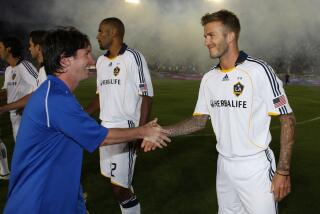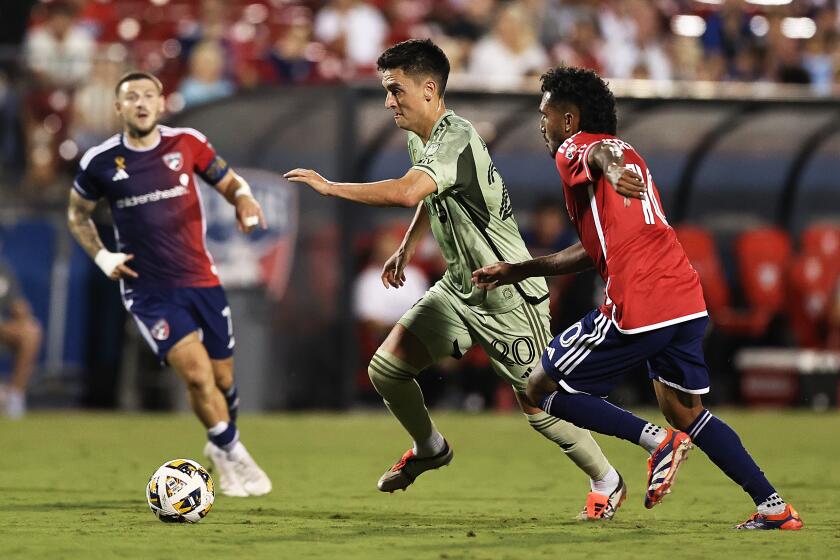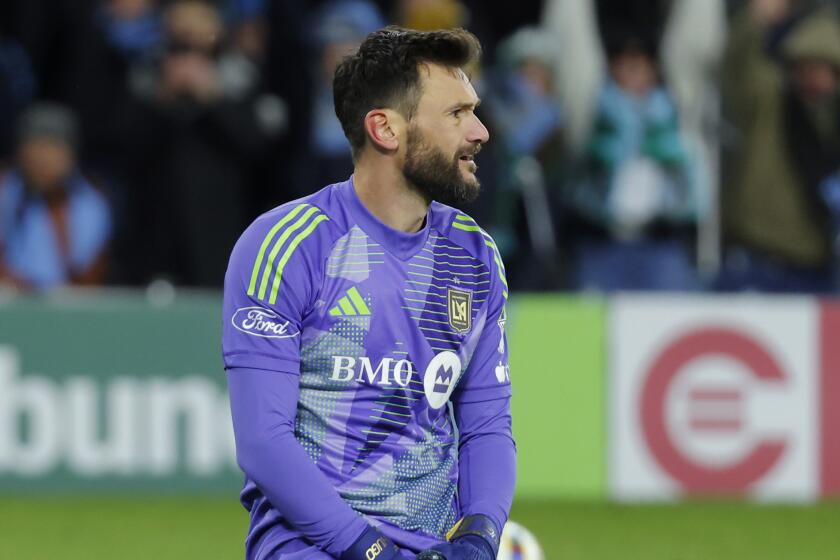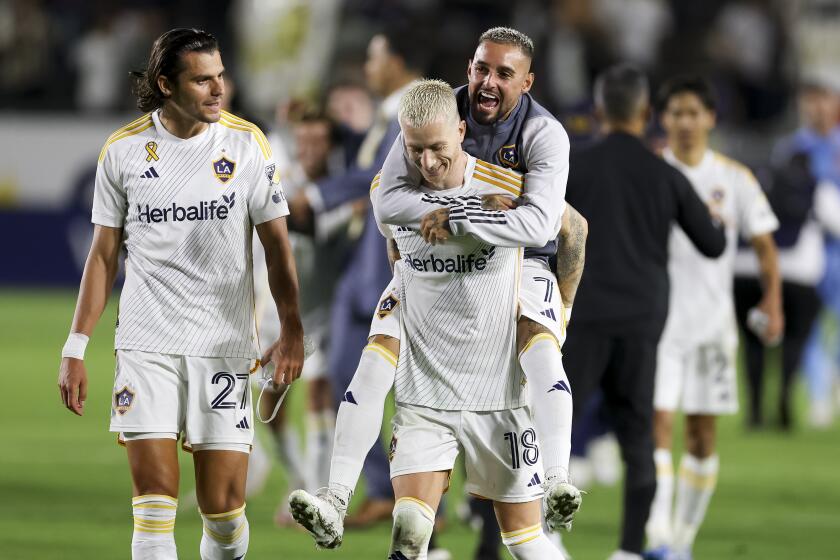General Public Got Few of City’s Soccer Tickets : World Cup: Three-quarters of the 9,000 passes earmarked for Pasadena were purchased by city officials or others with business or political contacts, records show.
The list of people and firms who bought the 9,000 World Cup tickets allotted to Pasadena reads like a who’s who of local and regional business, politics and government.
Wantanabe Kikaku Co., a Tokyo-based firm, bought 1,069 tickets, the largest single purchase of World Cup tickets allotted to the city to resell at face value.
Municipal employees scooped up about 1,020 tickets, with City Atty. Victor Kaleta buying the most--104, according to recently released city records.
State Sen. Richard Polanco (D-Los Angeles), who used to represent Pasadena as an assemblyman, bought 26 and former Los Angeles Mayor Tom Bradley bought six, records show.
The local law firm of Hahn & Hahn bought 30, while Huntington Memorial Hospital officials picked up 32.
Only about one-fourth of the city’s tickets went to people who did not hold some position of economic or political power, work for the city or know a municipal employee or official, records show.
About 1,670 tickets were sold to local soccer and recreation clubs, and about 300 tickets were given to needy youths. The council members said they sold tickets to ordinary constituents as well, although a full accounting was not immediately available.
Generally, Pasadena officials said, they had adequately taken care of the needs of the average citizen.
“I think the approach that was used here was a fair approach, one that gave access to tickets to residents and also used them for purposes of economic development and promoting the interests of the city of Pasadena,” Councilman William Thomson said.
And a lack of demand for some World Cup tickets made community access a moot point, one city official noted.
Scalpers were selling tickets below face value at some of the games at the Rose Bowl. Before last week’s semifinal match between Brazil and Sweden, for example, scalpers were selling $300 tickets for $50.
Councilman Rick Cole said the distribution went reasonably well, but said he would welcome a change in the way the city distributes its allocation of tickets to events at the Rose Bowl.
“I have long advocated that council members and city staff be entirely taken out of the loop, (in favor of a system) that was clear and automatic and had no room for questions or controversy or manipulation,” Cole said.
Distribution of city-held tickets for the eight World Cup games at the Rose Bowl was beset by controversy from the start.
In March, 1993, about eight months after Pasadena landed the World Cup, tournament officials told the city it would have an opportunity to buy 9,000 tickets at face value. The tickets, including 2,000 for last Sunday’s final game, ranged in value from $25 to $475.
But the World Cup gave the city two months to pay for half of the tickets, which had a face value of more than $1 million.
The city couldn’t afford to put up the money. So city staff scrambled to find buyers. Promises of sales to holders of Rose Bowl luxury suites, to others who had done business with the city and to city staff members brought charges from City Council members that some of the buyers could be profiteers.
The City Council considered withdrawing the ticket offers, but backed off in December after being advised that such an action could expose the city to lawsuits.
Everyone who bought city tickets was required to sign an agreement that they would not scalp them. But they were not required to provide a full accounting of where the tickets went.
City officials said the initial scramble contributed to a situation where employees were allowed to acquire dozens of tickets. But at least some employees, including Kaleta, the city attorney, were also allowed to acquire more tickets in the days leading up to the games, when demand was not as strong as anticipated.
Kaleta said he personally used three of his tickets, while the rest were sold at face value to in-laws and friends.
David Sams, a Rose Bowl official in charge of selling stadium luxury boxes and overseeing Brookside golf course, bought 56, the second-largest amount of any employee, according to city records.
Sams said he passed on some of the tickets at face value to his employees and others went to friends and relatives. Ten other employees bought 20 or more tickets.
Council members were allowed to buy tickets for themselves, relatives, friends and constituents. Mayor Kathryn Nack acquired 214, most of which went to constituents, she said.
Wantanabe Kikaku Co., which markets sports merchandise, was able to buy $112,000 worth of World Cup tickets because it leases 10 luxury boxes at the Rose Bowl, acting Rose Bowl Manager David Jacobs said. It is policy to make such tickets available to firms and individuals who lease the stadium’s 34 boxes, he said.
It also is policy to make tickets available to other city affiliates, such as Avalon Productions, which produces concerts at the Rose Bowl, and Orrick, Herrington & Sutcliffe, a Los Angeles law firm that has served as a bond counsel for Pasadena. Avalon bought 32 tickets and members of the law firm acquired 59, records indicate.
The city also set aside 1,742 tickets--including 971 that were assigned to the Chamber of Commerce--to keep existing businesses in town or to help attract new companies. A Hong Kong investment group bought 16 of the tickets, and the Korean Chamber of Commerce bought eight. Ticket distribution is a recurring debate in Pasadena. In 1987, the issue flared after the city hosted the Super Bowl. Some of the tickets bought by council members were resold without their knowledge for several times face value.





